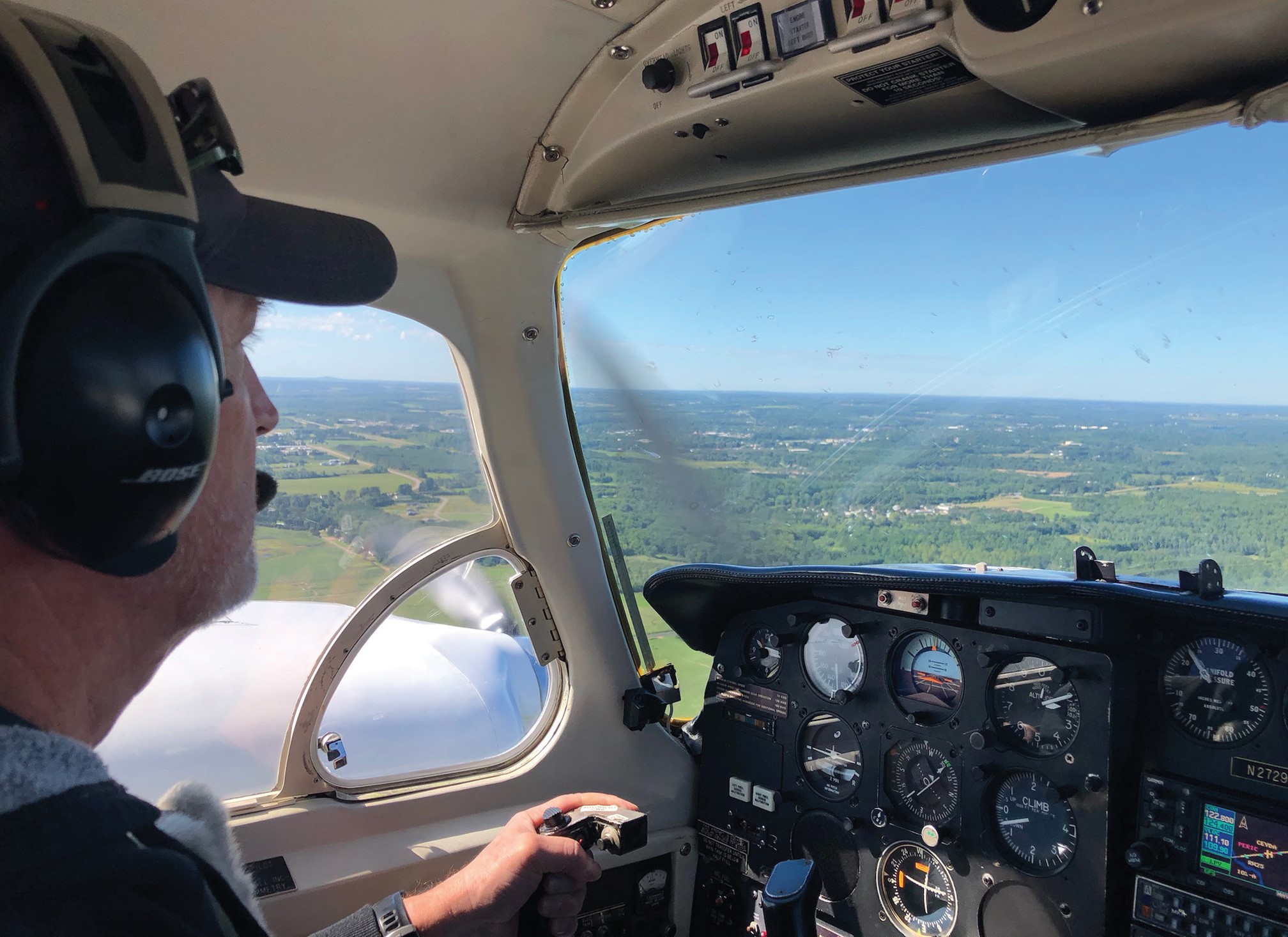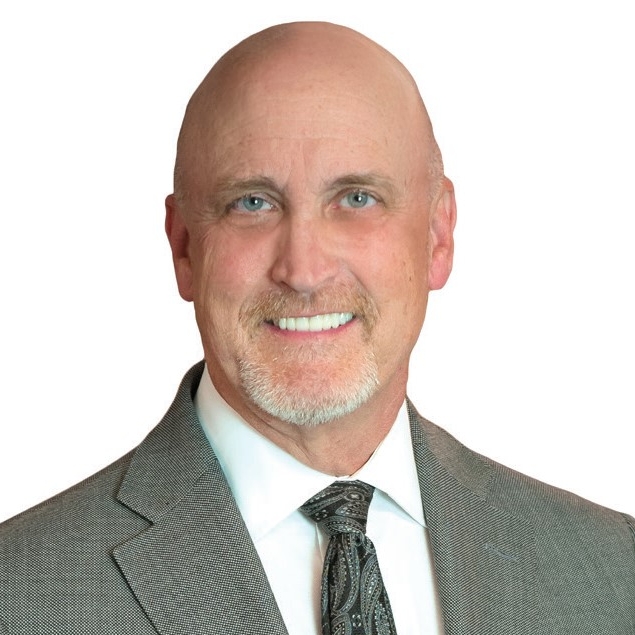Pilot and Trinity Health COO Ben Carter offers leadership lessons for turbulent times

As a pilot and flight instructor with 2,300 hours of flight time, Ben Carter is prepared for the unexpected.
“When you’re flying, you always have a forecast,” Carter said. “But when your actual conditions are different from the forecast, you have to adjust your flight plan.”

That was certainly the case when Carter moved from CFO to COO for Trinity Health in Livonia, Michigan, on Jan. 1, 2020 — just as the world was learning about a cluster of patients with “viral pneumonia of unknown cause” in Wuhan, China. Soon after, COVID-19 patients started appearing in the U.S., including in Trinity Health’s 92 hospitals in 22 states.
During the past 18 months, Carter, FHFMA, CPA, and his operations team have weathered the impact of three COVID-19 surges. This includes having 40% of the system’s revenue disappear when governors around the country temporarily halted non-emergent care during the first surge. In this most recent surge, Carter said the main challenge has been clinical staffing because of the national nursing shortage.
Charting the path to COO
Prior to becoming COO, Carter had served as executive vice president and CFO of Trinity Health since 2010. He said being an “operationally minded CFO” helped him make a smooth transition to the COO role, even in the midst of the pandemic.
Carter held numerous finance and nonfinance roles at organizations like Oakwood Health System and Detroit Medical Center (DMC) before joining Trinity Health, which has $19 billion net revenue. At both Oakwood and DMC, he helped lead financial turnarounds and strategic merger and acquisition deals. He also partnered with his COOs and volunteered to take on assignments to develop his operational acumen. That broad experience helped him move beyond reporting financial news to being a “newsmaker,” which he believes is critical for all operational leaders.
As soon as Carter moved from CFO to COO at Trinity Health, he brought all of the local hospital CEOs and his other direct reports together to determine the best way to manage the change ahead.
“They learned about how best to work with me, and I learned about how best to work with them, including how to support them,” Carter said. Establishing this process just before the pandemic helped him manage and communicate with his team more effectively during the crisis.
“Particularly in a crisis, you need to be clear about your expectations of all of those people who are in your chain of command, Carter said.”
During the chaotic first surge, Carter and his team had to make quick decisions. “We bought 1,000 beds. We bought 2,000 ventilators,” he said. “I was making $25-million, $50-million purchasing decisions on the spot.”
Carter said his financial acumen prepared him to consider the implications of those decisions, such as whether the system could potentially resell new ventilators that were no longer being used.
As COVID-19 affected regions differently and at different times, Carter used situational leadership to adjust his style to the conditions at hand. “It’s a skill of knowing when to be hard and heavy, knowing when to be light, knowing when to push harder and knowing when to let your foot up,” he said.
Lessons for leading during uncertainty
Carter offers some additional advice to financial and operational leaders on guiding their teams through times of change.
Keep an eye on both “business engines.” When pilots fly twin-engine planes, they have to monitor the dials gauging the performance of both engines. In recent months, healthcare leaders have been in a similar situation as they try to manage their COVID and non-COVID businesses. Leaders can work with their teams to ensure they are focused on both priorities.
Exude a sense a calm. “Being a pilot teaches you to not overreact to anything, because when you do, your field of vision tends to narrow,” Carter said. “You want to keep a full field of vision so that you’re considering all possibilities.”
Sometimes, a pilot will lose an engine during a flight. For these situations, Carter teaches his flight students to calm themselves by adjusting their clocks first and then running through their checklist. “It’s a way to bring calm to yourself, so then you can turn back to the matter at hand,” he said.
Help your team weather the storm by building resilience. Leaders should aim to establish hope, trust, compassion and stability if they want to help their teams sustain the energy they need to work through stressful times. Open, transparent communication can help establish the foundation for these four elements, Carter said.
Stay focused on the horizon. As his organization begins FY22 on July 1, Carter believes healthcare leaders will ease out of crisis mode and be able to focus more on operations and performance metrics that were disrupted by the pandemic. “Those are the engine dials that we would normally focus on,” he said. “We’re going to go back to a number of strategic initiatives that we have going forward, which is a combination of entering new markets and new service lines and focusing more on digital health.”





